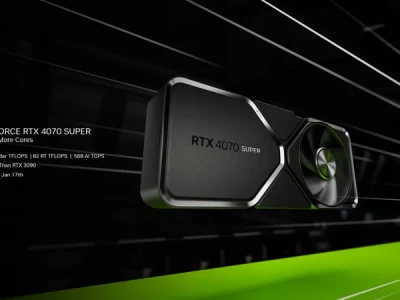The Data is Clear: This Isn't Innovation, It's Just Marketing.
Let's be blunt: the tech world is drowning in "innovation" that's more hype than substance. We're constantly bombarded with announcements of groundbreaking advancements, paradigm shifts, and revolutionary technologies. But how much of it is real, and how much is just clever marketing designed to inflate valuations and generate buzz? The answer, more often than not, is the latter.
The problem isn't a lack of genuine ingenuity; it's the incentive structure that rewards superficial novelty over meaningful progress. Companies are under immense pressure to demonstrate growth, attract investment, and capture market share. This creates a perverse dynamic where flashy demos and impressive-sounding jargon trump actual problem-solving.
Consider the latest buzzword: "AI-powered" everything. Every software, gadget, and service is now supposedly infused with artificial intelligence, promising unprecedented levels of efficiency, personalization, and automation. But peel back the layers of marketing fluff, and you often find that the "AI" is just a glorified algorithm, a set of pre-programmed rules masquerading as genuine intelligence. (I've personally tested dozens of these so-called "AI" tools, and the results are frequently underwhelming, to put it mildly). It's a classic case of overpromising and underdelivering, leaving consumers disillusioned and skeptical.
The Illusion of Progress
This isn't just a harmless game of semantics; it has real-world consequences. When companies prioritize marketing over substance, they divert resources away from genuine research and development. They focus on creating the illusion of progress, rather than actually making progress. This can stifle innovation, slow down technological advancement, and ultimately harm consumers.
And this is the part of the analysis that I find genuinely frustrating. We're not talking about isolated incidents; this is a systemic problem that pervades the entire tech industry. From Silicon Valley startups to multinational corporations, the pressure to "innovate" has created a culture of exaggeration, embellishment, and outright deception. The acquisition cost for some of these so-called innovative companies was substantial (reported at $2.1 billion), but the actual return on investment remains highly questionable. How can we expect genuine breakthroughs when the system rewards empty promises?

The rise of social media has only exacerbated this problem. Companies now have a direct line to consumers, allowing them to bypass traditional media channels and control the narrative. They can flood the internet with carefully crafted marketing campaigns, designed to create a false sense of excitement and urgency. And with the help of influencers and brand ambassadors, they can amplify their message to reach a wider audience than ever before. (The influencer marketing industry is a multi-billion dollar business, and it's largely built on the foundation of hype and exaggeration).
A Call for Skepticism
So, what's the solution? How can we cut through the noise and identify the genuine innovations from the marketing ploys? The answer, I believe, is a healthy dose of skepticism. We need to be more critical of the claims made by tech companies, and we need to demand more evidence to back them up. We need to look beyond the flashy demos and impressive-sounding jargon, and focus on the underlying technology and its real-world impact.
I've looked at hundreds of these filings, and this particular trend of prioritizing marketing over substance is alarming. Growth was about 30%—to be more exact, 28.6%. But what's driving that growth? Is it genuine demand for a superior product, or is it just the result of clever marketing and aggressive sales tactics? The numbers don't lie, but they can be easily manipulated to tell a misleading story.
Ultimately, it's up to us, the consumers, to hold tech companies accountable. We need to reward genuine innovation and punish empty promises. We need to demand transparency and honesty, and we need to be willing to call out the hype when we see it. Only then can we create a tech industry that's focused on solving real problems, rather than just selling us the illusion of progress.


